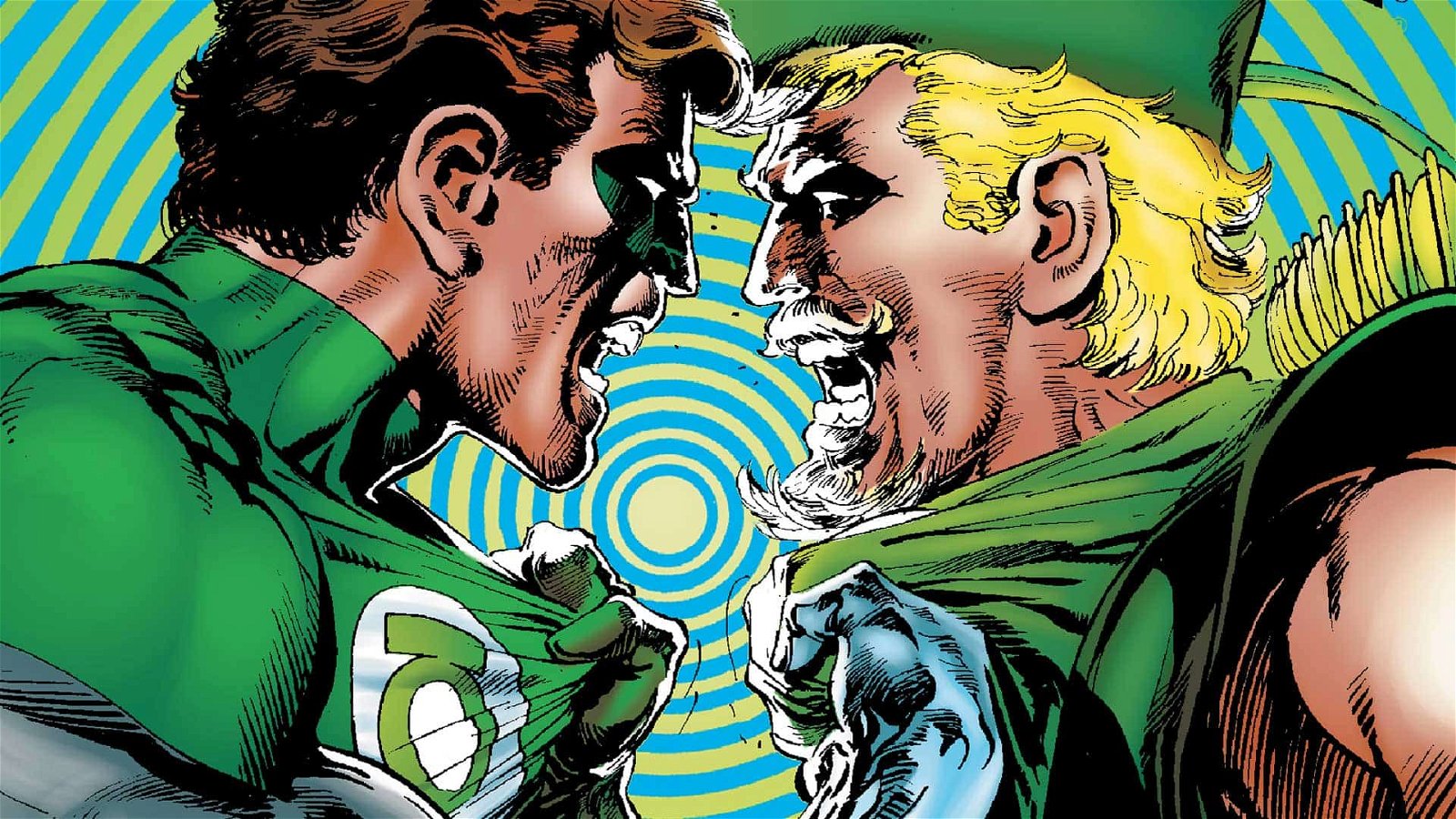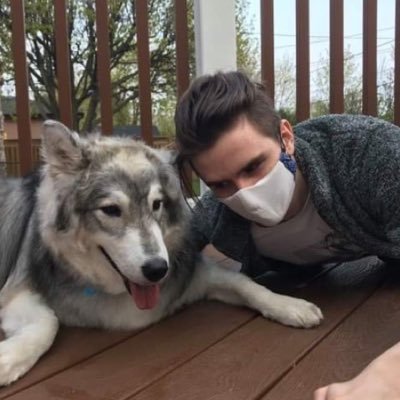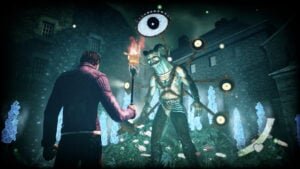Denny O’Neil was born in 1939, which fittingly is the same year that Batman debuted, in Detective Comics #27. Denny arrived at DC Comics in the late 1960s and soon became one of the most influential writers in the business.
Over the course of his 30+ year career, he reinvigorated Batman, bringing him back to his darker roots and setting the tone for the character we know today. He has created more than 30 characters, including Ra’s Al Ghul, John Stewart, Iron Monger and Azreal, and continues to write comics to this day.
CGMagazine’s Alex Handziuk had the pleasure of talking with Denny before Toronto Comicon to talk about what he has learned throughout the course of his career, his thoughts on writing and what makes comics such a unique medium.
When you arrived at DC Comics, the company was sort of stuck in the 1950s and trailing behind Marvel. What was the dynamic back then?
Back then I was a freelancer writing westerns and that kind of thing for Dick Giordano over at Charleton, and I didn’t look for work at DC because, in my mind, that was the stodgy old company. So I thought there was no sense in wasting time going up there. One morning, I walked into Dick’s office and he asked how I would like to do what I’m doing now only for three times the money? And I thought, my, isn’t he an eloquent fellow, I think he just talked me into it. What had happened was that he had been hired by DC and part of the deal was that he had to bring five of his Charleton people with him, including me Steve Skeates, and Steve Ditko. We kind of went over there as a package deal and DC didn’t know it but it was about to have some significant change. At the time it was a very territorial company. If you were a Julie Schwartz writer, you did not work for Murray Boltinoff. So that’s why there were different versions of Batman, for example. Each editor made an attempt to make their own make sense and make it one piece, but they were not willing to learn the lessons that Stan Lee was teaching us all at that time, and that the Marvel movies continue to teach.
I thought, in the arrogance of youth, that those guys at DC saw what a terrific job Steve Skeates and I were doing for Charleton and had to have us on board. Then, years later, I was writing a piece on Superman’s 50th birthday for a Cleveland public show. Among the people I interviewed was Paul Levitz and he told me what really happened. The guys who created the superhero pantheon, other than Batman, Superman, and Wonder Woman, a lot of them were veterans with families and they had expenses. They came to the company and asked for a little help with health insurance and the company’s response was to fire them all. They needed somebody to write those books and that was Steve and me, so we were not hired for our talent, we were hired because we were carbon-based life forms who knew how to type. When I was doing this interview with Paul I said you do understand that I’m talking to you in the role of a reporter, and what you told me makes the company look very bad, and he said put it in print because it will tell everybody how far we’ve come.
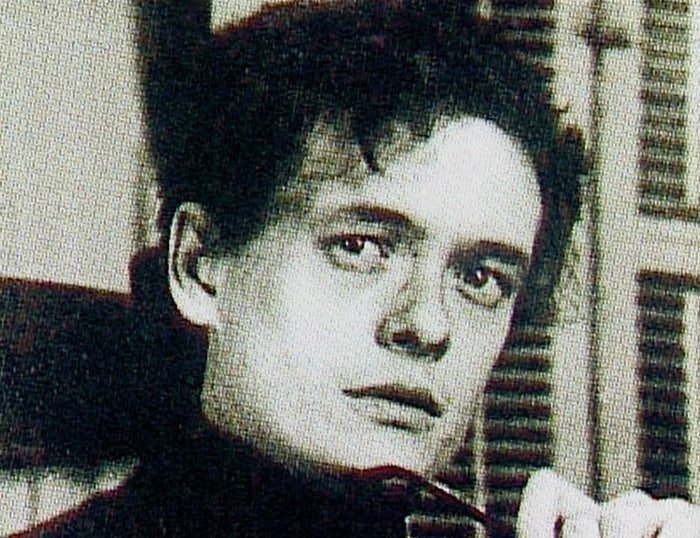
CGMagazine: How have things changed since then in terms of creators rights?
Denny O’Neil: It’s been 25 years since I wrote that article and we’ve come a lot further than that since. The business is changing. I still don’t get as much money for use of my Batman plot as the guy who wrote the screenplay does, which isn’t fair, but it’s fairer than it used to be. I think I was the first comic book guy to ever get paid for a movie use of my material and it was a few years ago when my late wife, Marifran and I were at a local theatre and there was a preview for Iron Man and a familiar voice came out of the screen. I said don’t do I know that character? And Mary said I think you created him. That was Obadiah Stane (The Iron Monger), who played the villain in the movie.
I didn’t expect to get paid anything for that but I knew the editorial honcho of Marvel pretty well because we had created a character together, and so I wrote him one of my semi attempts to be funny and Joe sent back an
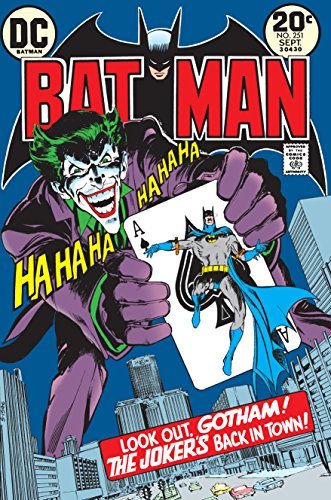
Batman #251 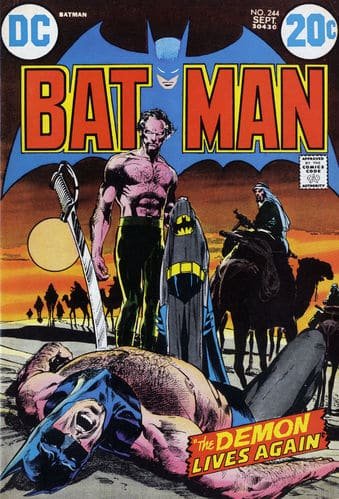
Batman #244 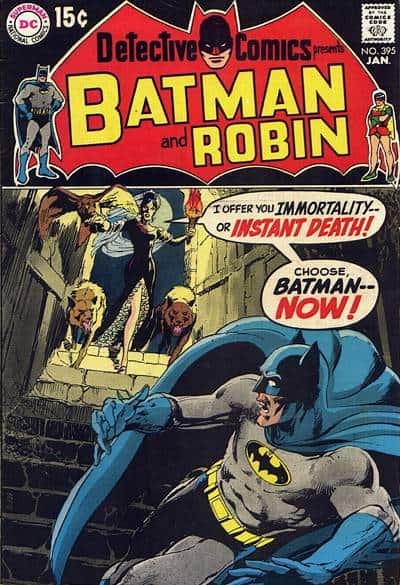
Batman and Robin #395
CGMagazine: You helped rebrand Batman into a darker character that has been synonymous with the name for the past 50 years. What went into that decision?
Denny O’Neil: The comics at the time had been trying to follow the example of the Adam West comedic TV show, and they weren’t doing a very good job of it. The main reason why is that I don’t think that kind of humour was natural to these writers, and it certainly wasn’t natural to me. The books were being a bit shaky sales-wise, as hard as that is to believe, and Julie wanted to continue to publish Batman. So he came to me and asked, “What have you got my boy?” What I thought I had, and what I told people I had, was that we were going back to what Bill Finger started
That version of the character didn’t last a year because within 11 months he had a son. We called him
CGMagazine: Your Green Lantern/Green Arrow run is one of the most well-known series in comics mainly because it tackled real-life issues head-on. How did you come up with the idea and was there any difficulties in getting it published?
I think the guys in the big office didn’t know we were doing it. Julie Schwartz had continued stories once a year, and it was one of the big no-no’s at the time because the conventional wisdom said that no reader could be sure of getting two consecutive issues of anything. If you got Batman #45 there was no guarantee that you’d get #46 because of how spotty the distribution was. Julie did a crossover once a year between the Justice League and Justice Society. And I asked him how he managed to do that and he said, “I didn’t ask.” So I went with that advice with Green Lantern/Green Arrow. I walked into Julie’s office and he said, he wanted to continue publishing Green Lantern because he really liked the character, his background in science fiction but the sales were terrible, so he said, “What have you got my boy?” So I wrote a story predicated on current events and it got published and then it really took off.
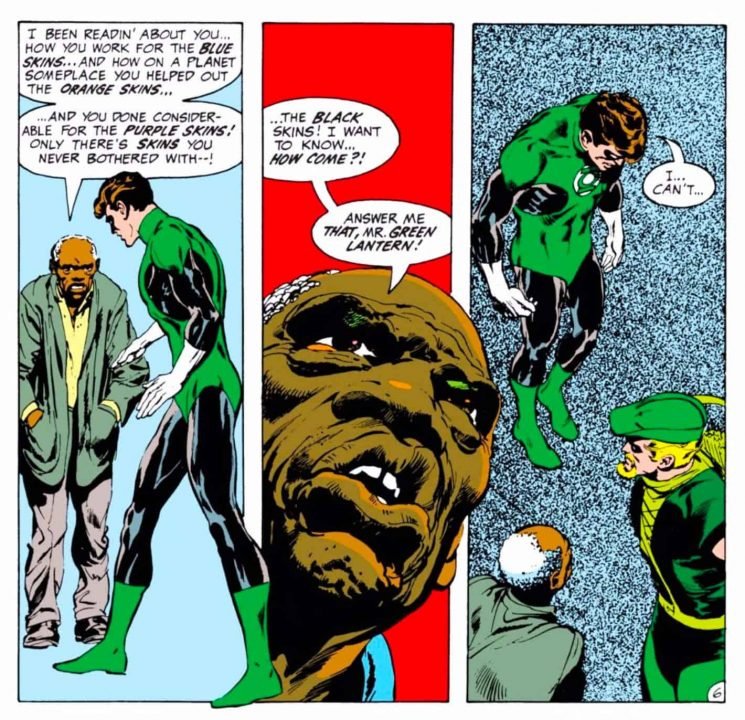
Herman Melville once said that to write a mighty book you need a mighty theme. One of the things that we had going for us was that our stories were about real problems people could identify with. It wasn’t about a guy in a funny suit it was about people who have problems. The conventional wisdom at the time was that a comic book had a life of a month. I figured, well, we are pushing the envelope so maybe this is the last three months. It’s been 40 years and I can look at those things over on the bookshelves now. So it worked, and Neil Adams and I started getting invitations to go on radio and TV shows, and that was a lot of publicity. My wife got a death of threat for it from somebody down south and my boss sent her flowers, which was a nice gesture on his part.
CGMagazine: What is your perspective on writing these characters for a living?
Denny O’Neil: I always thought it was a job, and after a while, it’s thought it was a great job. But my concern was that I had made promises to people and if I didn’t want to be a jerk then I had to keep those promises. Also, I had a baby and a wife that had to eat, so it was a job. And then last year I was working at what is generally believed to be the best comic bookshop in the world. It’s in a little Canadian town called Guelph and I was on television and the store was absolutely jammed with people. And I said I had the best job in the world. And I stopped and thought, my god, I believe that. I had only thought about it as a job but look at the facts. The money since they started paying us for ancillary use, has gotten to be pretty good.
Mary Fran and I have travelled all over the world and not just anywhere. When we went to Chile, we went to the President of Chile, I have eaten at the Senate Dining Room, I have lectured at the Library of Congress. I mean, this has been a pretty fancy job. Ernest Hemingway once said it’s easy to be a writer, all you do is sit in front of a blank piece of paper until you sweat blood. And to that I say get over yourself. Sitting in an air-conditioned room is far more pleasant than working on an assembly line or driving a cab or unloading a ship. I realized I work with funny good intelligent people, I’m doing work that I have been doing since I was seven years old. I have ADHD so there are jobs, I really can’t do and in the list of things, you should do if you’re are ADHD both writer and editor are on that list.
Check out the full interview in an upcoming issue of CGMagazine!
